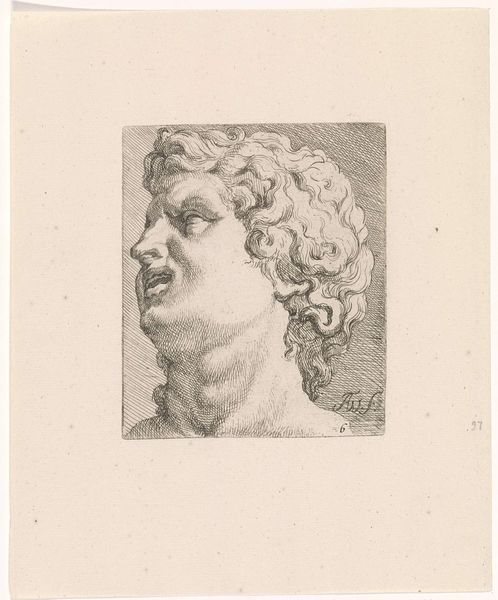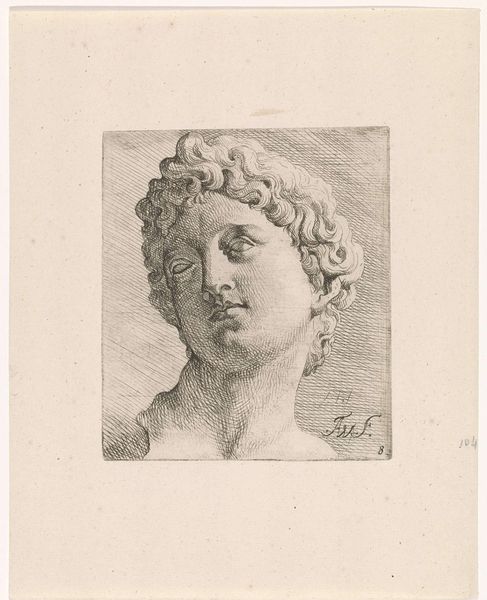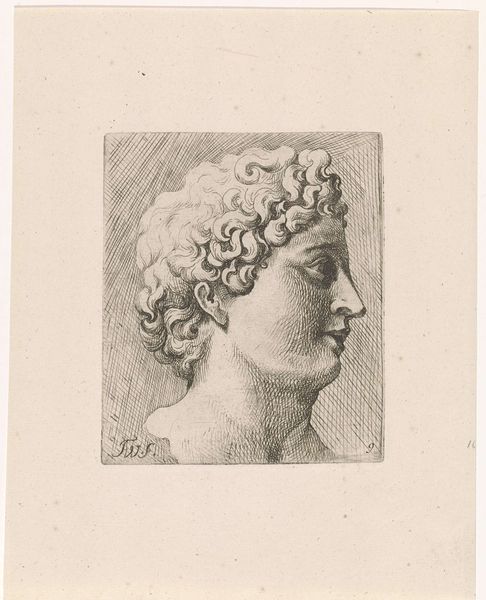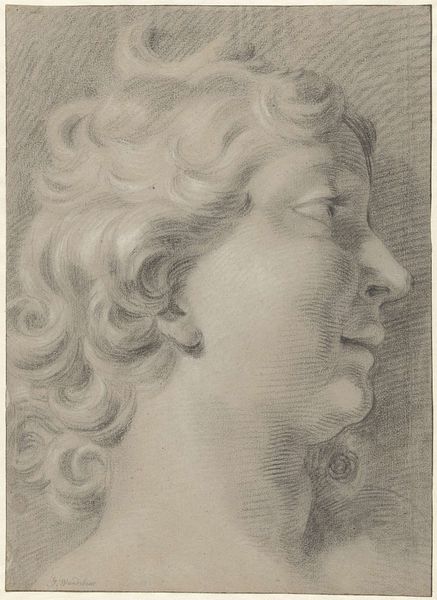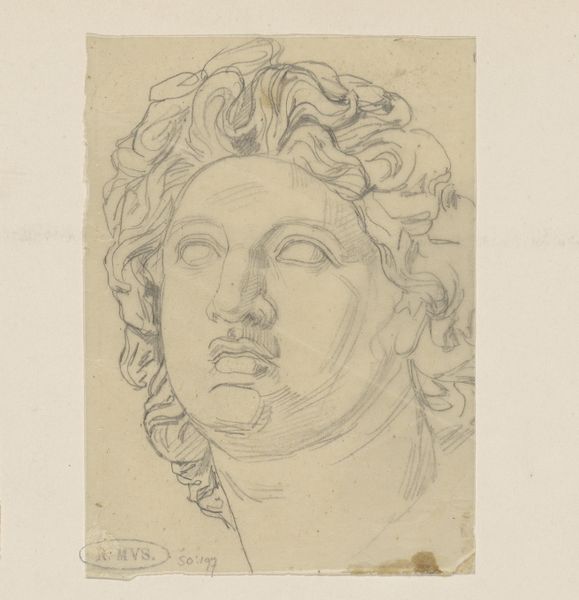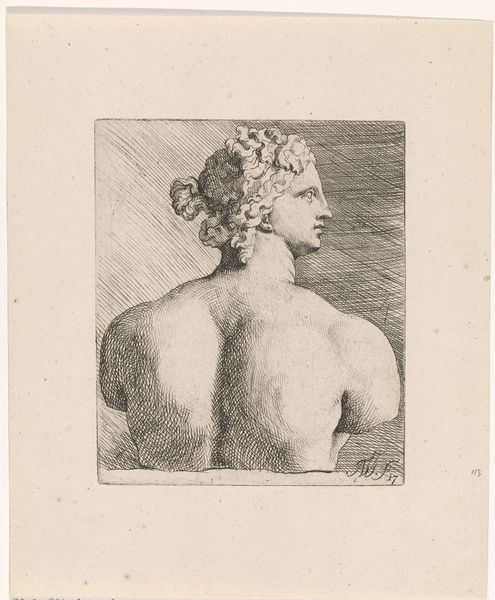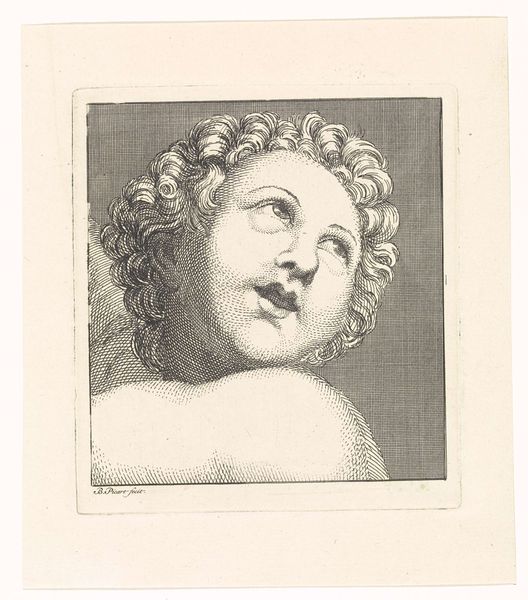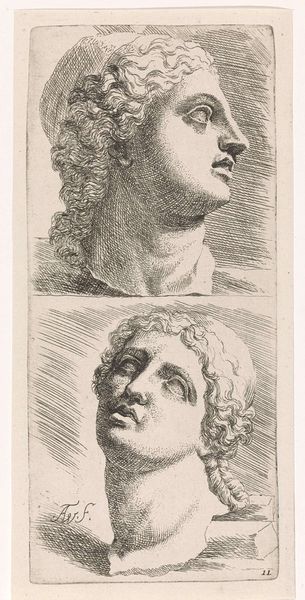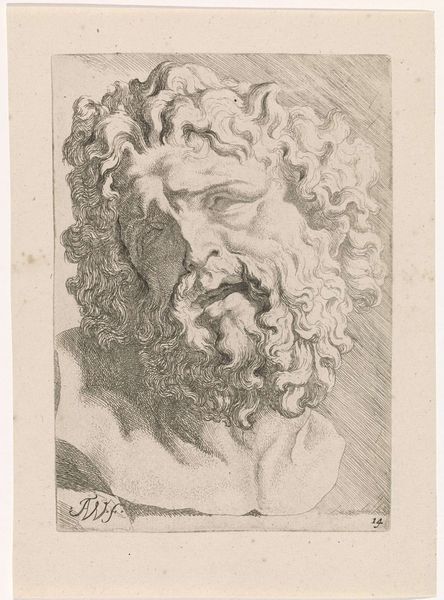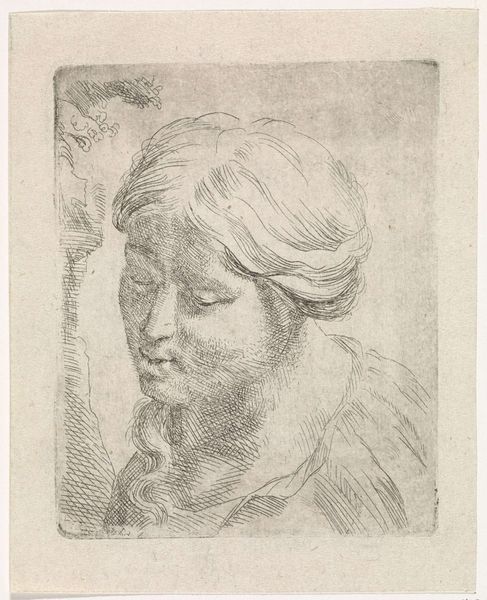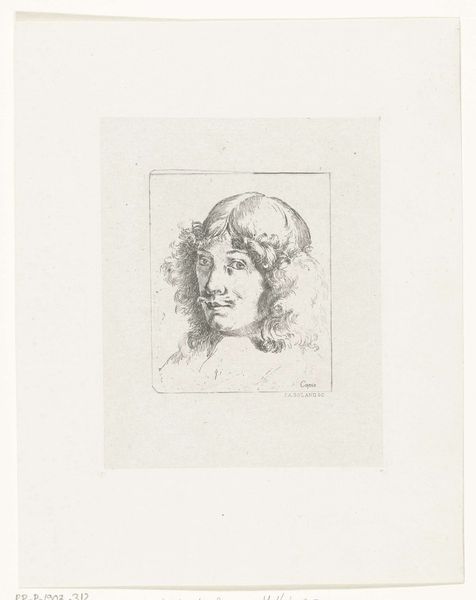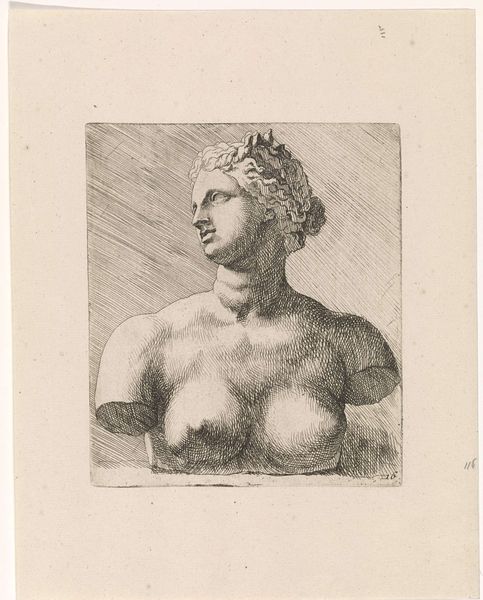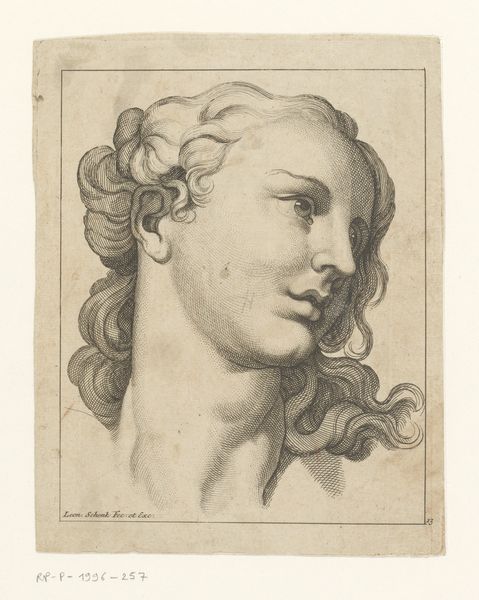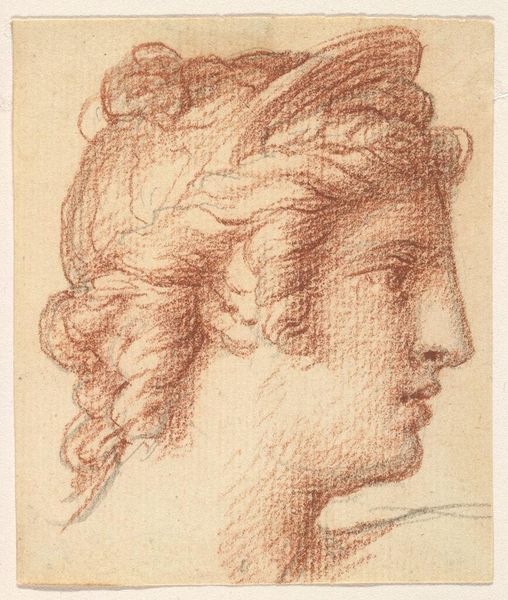
Hoofd van een van de zonen van Laocoön, vooraanzicht 1672 - 1711
0:00
0:00
augustinusiterwesten
Rijksmuseum
print, engraving
#
portrait
#
pencil drawn
#
baroque
# print
#
pencil sketch
#
old engraving style
#
figuration
#
pencil drawing
#
line
#
history-painting
#
engraving
Dimensions: height 117 mm, width 98 mm
Copyright: Rijks Museum: Open Domain
Editor: We're looking at Augustinus Terwesten’s engraving, "Head of One of the Sons of Laocoön," dating from around 1672 to 1711. It’s a powerful, if small, image – that face, caught in what looks like immense pain, is incredibly compelling. What strikes you when you look at this piece? Curator: Oh, the Laocoön! You know, that sculpture group haunted my art history lectures, a writhing mass of snakes and agony. This rendering strips away all that drama and just focuses on…the human. That’s what hits me – how Terwesten captures that raw, primal scream in a face, through lines that almost vibrate with feeling. Don't you think the agony here seems...theatrical somehow, distant? Editor: I see what you mean. It’s intense, but controlled, somehow. Was this a common subject, this Laocoön sculpture? Curator: Absolutely! It was *the* classical reference point. Discovered in the early 16th century, supposedly the same sculpture Pliny described, it sparked endless debate: what's ideal beauty, what's permissible in depicting suffering? For Terwesten, it’s a chance to show off his anatomical skill and his knowledge of art history. This is Terwesten paying homage to classicism, but with a distinctly Baroque flair – think drama, think emotion cranked up to eleven. How does that historical connection change your feeling about it? Editor: It makes me think about layers of interpretation, about artists responding to other artists across centuries. I see it now – less a raw expression of pain, more a study of how to represent pain. Curator: Exactly! And maybe, just maybe, a little bit of a commentary on how art can both reveal and conceal truth.
Comments
No comments
Be the first to comment and join the conversation on the ultimate creative platform.
